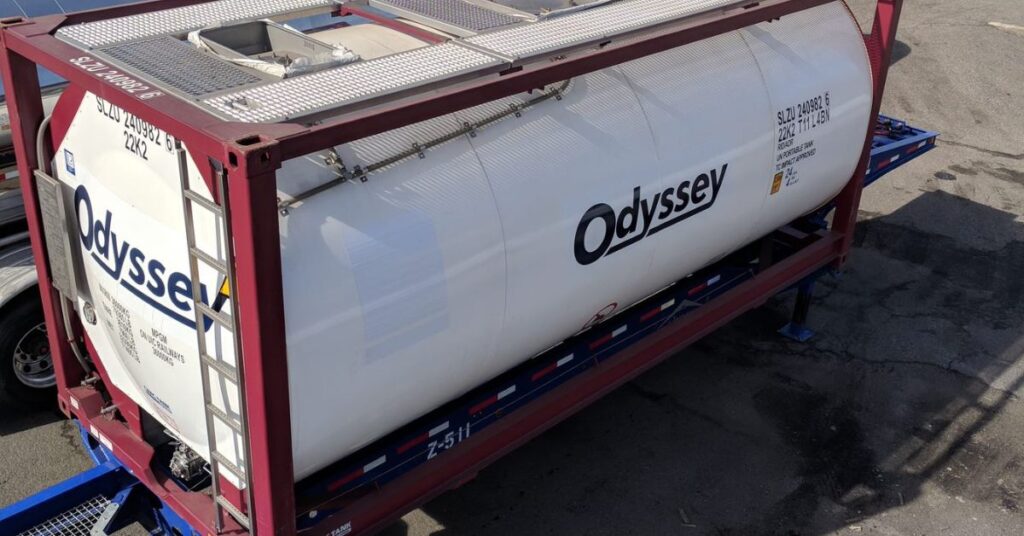UPDATE 3/22/2022
On March 22, 2022, the “TCRC – Train and Engine Negotiating Committee agreed to enter binding arbitration with CP, ending the TCRC strike action that began over the weekend.”
The unions applied to the National Mediation Board (NMB) for a federal mediator to be assigned to the negotiations March 11th-16th, 2022. If the mediation fails, strikes, work stoppages and supply chain disruptions could occur.
“We anticipate that the involvement of the NMB will cause the industry to refocus on addressing the legitimate needs of the men and women whose labor generates their positive financial returns,” said the Coordinated Bargaining Coalition (CBC), which negotiates on behalf of the 10 rail unions.
“The railroads believe in the collective bargaining process and will continue negotiating in good faith to reach voluntary agreements with the CBC unions,” said NCCC’s Brendan Branon in a National Railway Labor Conference (NRLC) press release. “In that regard, the railroads welcome the NMB’s assistance and look forward to their discussions with the CBC and the NMB.”
What Happens Now?
“Without a contract expiration date, negotiators do not work against a fixed deadline and proceed through various steps that are designed to facilitate negotiated settlements,” the NRLC explains.
These steps include compulsory mediation under the supervision of the NMB, which is commonly used in national freight rail bargaining. Strikes and other forms of work stoppages are prohibited while this process is underway, the NRLC points out.
“With this most recent filing by the CBC, all unions in national handling are now engaged in the mediation process,” it adds. “In every case the railroads’ goal is to reach fair agreements in a timely manner.”
A “Normal Course of Action”
Referring to mediation as a “normal part of the collective bargaining process,” the NRLC says the process has been used in many recent national railroad negotiations to facilitate final agreements. There is no time limit for the mediation process, which may take months or years to complete. This happens when the parties reach a voluntary agreement or the NMB concludes that all reasonable efforts to reach such an agreement through mediation have failed.
“For decades, the national bargaining process under the federal Railway Labor Act (RLA) has been remarkably successful in facilitating contract settlements without labor strikes,” the group states, noting that the last service disruption due to a dispute arising from national bargaining took place in the early-1990s. “The railroads believe in the collective bargaining process and will continue negotiating in good faith to reach voluntary agreements without any disruptions to service.”
That may change this year if the mediation doesn’t work. For example, the Teamsters Canada Rail Conference (TCRC) recently voted 96.7% in favor of strike action if necessary. The possible work stoppage affects more than 3,000 locomotive engineers, conductors, trainpersons and yard workers at Canadian Pacific Railway, TCRC reports. The group participated in the mediation process with the assistance of the FMCS.
As of March 16th, the final day of mediation, CP issued a 72-hour notice of its plan to lockout employees on Sunday, March 20, 2022 if the union leadership and the company are unable to come to a negotiated settlement. Within the official CP statement, they state they took this “ undesirable step because we cannot prolong the uncertainty associated with a potential strike for weeks or months. Since Sunday, TCRC has been in a position to issue a 72-hour strike notice, introducing uncertainty into the supply chain that is already being felt. We take this action today to bring that uncertainty to an end. Delaying resolution of this situation would only make things worse.”
Following CP’s lockout notice, the TCRC – Train & Engine provided CP with its 72-hour strike notice, effective on Sunday, March 20, 2022. “For greater clarity, CP’s 72-hour lockout notice issued on March 16, 2022, as previously communicated, also to be effective 00:01 ET Sunday, March 20, 2022, remains in effect.”
On Sunday, March 20, 2022, the Teamsters Canada Rail Conference (TCRC) announced a strike throughout the country. As a result the TCRC’s executed a structured shutdown of its train operations across Canada.
On March 22, 2022, the “TCRC – Train and Engine Negotiating Committee agreed to enter binding arbitration with CP, ending the TCRC strike action that began over the weekend.”
Odyssey is actively following the contract negotiations between 10 rail unions and the National Carriers Conference Committee (NCCC) and will continue to provide updates and support to our clients.








